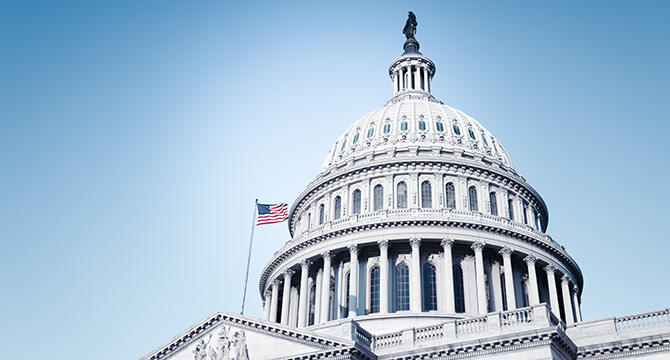Proposed Legislation Would Require Choice Between ANDA Litigation Or AIA Challenges

On June 13, 2018, Sen. Hatch (R-Utah) introduced an amendment that would require generic ANDA filers to choose between litigating validity in Hatch-Waxman district court litigation or an AIA challenge (IPR or PGR), and on June 14th, the Senate Judiciary Committee voted 16-5 to bring it to the Senate floor for a vote. Presently, generic ANDA filers can pursue challenges using both of these routes at the same time, although some courts may stay litigation pending the outcome of the AIA challenge. The proposed legislation would modify the Food & Drug Cosmetic Act (not AIA) to require the ANDA filer to confirm at the time of making its Par. IV certification that neither the ANDA applicant nor any party in privity has filed, or will file, a petition to institute an IPR or PGR challenge of any patent claiming the reference listed drug.
The Biotechnology Industry Organization and others have pointed out that the Hatch-Waxman Act was enacted prior to the existence of IPR challenges under the America Invents Act, which impacts the balance of incentives on which the original Hatch-Waxman Act rests. For example, the testimony of one witness during during a hearing held by the House on this topic suggests this has led to pharmaceutical companies seeking new ways to prevent Orange Book listed patents from being challenged in IPRs, including the Allergan deal with the St. Regis Mohawk tribe that attempts to rely upon tribal immunity as a shield (see https://www.ptabtrialinsights.com/2018/02/board-rules-that-tribal-immunity-is-unavailable-to-avoid-inter-partes-review-challenge/, an issue which is now pending before the Court of Appeals for the Federal Circuit).
According to a press release from Sen. Hatch’s office, the bill would have the following impact:
“Senator Hatch’s amendment, the Hatch-Waxman Integrity Act of 2018, would require a generic manufacturer wishing to challenge a brand-name drug patent to choose between Hatch-Waxman litigation, which affords certain advantages such as being able to rely on the drug innovator’s safety and efficacy studies for FDA approval, and IPR, which is cheaper and faster than Hatch-Waxman litigation but does not provide the advantages of a streamlined generic approval process. Senator Hatch’s amendment would preserve Hatch-Waxman as the standard path for generic manufacturers to challenge brand patents, while keeping IPR as an option where other interests come into play. It would not have any impact on the use of IPR by the tech community.”
